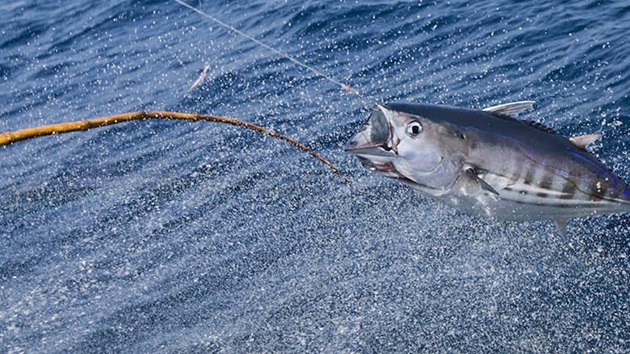
The long-term sustainability of the world’s most important tuna stocks – those in the Western Central Pacific Ocean (WCPO) – will be at risk if governments fail to implement protective management measures.
In early December 2022, the 26 member states of the Western Central Pacific Fisheries Commission (WCPFC) will meet for crucial negotiations on harvest strategies, measures that are needed to prevent tuna stocks in the WCPO from ever becoming overfished.
A failure to agree to harvest strategies would not only threaten the long-term sustainability of these tuna stocks but would also risk the MSC certification of 33 WCPO fisheries, which account for 85% of all MSC certified tuna. These fisheries, which include skipjack, yellowfin and bigeye tuna in the WCPO and albacore tuna in the South Pacific, are managed by the 26 member states of the WCPFC, which share these stocks.
Harvest strategies
Harvest strategies are vital to ensuring stocks are managed sustainably, this is particularly important for stocks such as tuna, which migrate across vast distances and are shared by multiple nations. Harvest strategies include setting harvest control rules which must be followed if the stock declines, acting as a ‘safety net’. However, establishing these rules can be challenging as they must be agreed by all nations which share the stock.
Although tuna stocks in the WCPO are currently healthy, it is essential that the WCPFC agrees to implement harvest strategies at the upcoming annual meeting.
The meeting, which will be held between 27 November and 03 December 2022, is a vital opportunity to ensure the continued certification of all WCPO tuna. WCPFC delegates must reach agreement on two key conservation management measures, which would result in the implementation of a harvest strategy for skipjack tuna and demonstrate progress towards delivering harvest strategies for other tuna stocks within the region.
Suspension risk
If progress is not made, certified WCPO tuna fisheries risk suspension from the MSC program. Not only will the fisheries be unable to resolve a condition of certification requiring well defined harvest control rules to be in place by June 2023, but a lack of progress towards the delivery of harvest strategies undermines the current rationale used to certify all WCPO tuna fisheries.
Failure to implement harvest strategies would jeopardise the long-term health of these stocks and undermine the progress made by WCPO fisheries, which have worked hard to improve their sustainability and meet the MSC Fisheries Standard.
MSC certification not only demonstrates a stock is productive and healthy, but ensures fisheries are well-managed and committed to reducing their impacts on the marine environment. This includes ensuring fisheries are not involved in egregious practices such as shark finning and are not impacting the recovery of endangered threatened and protected species. The loss of MSC certification would also mean a loss of the independent assessments and audits which ensure that certified fisheries continue to meet the MSC Standard and deliver improvements.
A call to action
The MSC, alongside leading retailers, tuna brands, the fishing industry and NGOs worldwide, has long been calling for the WCPFC to reach an agreement on harvest strategies and safeguard the long-term health of these vital stocks. Supply chain companies worldwide have written to the WCPFC to demand that the adoption and implementation of harvest strategies is accelerated, with 118 companies signing a letter coordinated by the NGO Tuna Forum.


